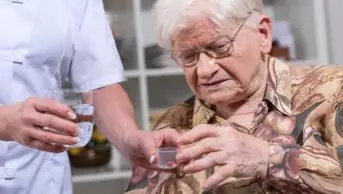
Shutterstock.com
The General Pharmaceutical Council (GPhC) has reassured pharmacy professionals over the reflective element of its revalidation process after the government announced a review of medical malpractice cases.
Health and social care secretary Jeremy Hunt ordered the review in the wake of the case of trainee paediatrician Hadiza Bawa-Garba who was struck off the medical register after being convicted of manslaughter on the grounds of gross negligence after mistakes in the care of a six-year-old boy who died from sepsis.
The “rapid review” of medical malpractice cases will be led by former president of the Royal College of Surgeons, Norman Williams, and will focus on reflective learning, openness and transparency. It is expected to report back by the end of April 2018.
The General Medical Council has already announced its own consideration of the issues around medical manslaughter.
Bawa-Garba’s case has led to some doctors boycotting reflective entries as part of their appraisal process, and Hunt himself expressed concern over the implications for learning and reflective practice in e-journals.
“We understand that pharmacy professionals may be worried about reporting errors and taking part in processes to learn from errors, but it is vital for patient safety that errors are reported and discussed,” said Duncan Rudkin, chief executive of the GPhC.
“For this reason our revalidation proposals seek to encourage and support pharmacy professionals to reflect on where their practice could be improved during their peer discussion.”
He added that the GPhC will not ask pharmacy professionals or peers to record what was discussed, but instead they will be asked to record how the process of having a peer discussion has benefited their practice. Furthermore, he said the records should not contain any details which could identify a patient.
Hunt told the House of Commons on 6 February 2018 that medical malpractice review would “ensure the vital role of reflective learning, openness and transparency is protected so that mistakes are learned from and not covered up”.
He said the review would seek to establish “where the line is drawn between gross negligence manslaughter and ordinary human error in medical practice so that doctors and other health professionals know where they stand in respect of criminal liability or professional misconduct, and any lessons that need to be learned by the GMC and other professional regulators”.
Rudkin said the GPhC would “actively engage” with the rapid review and carefully consider the outcomes.


